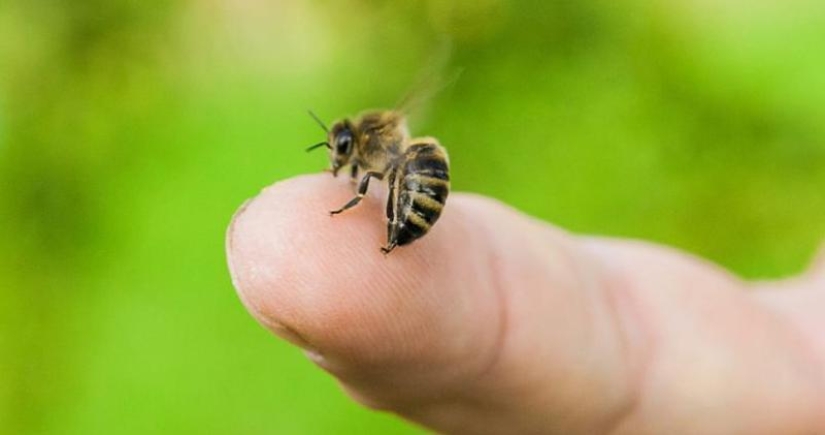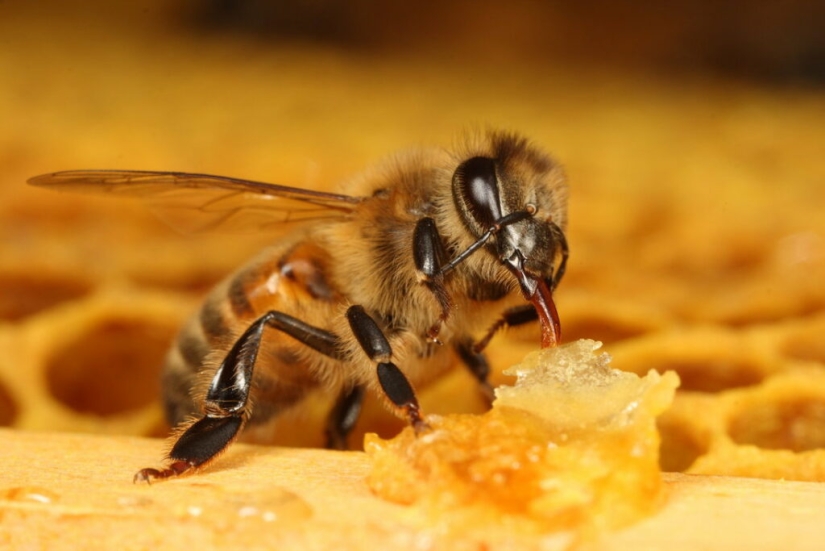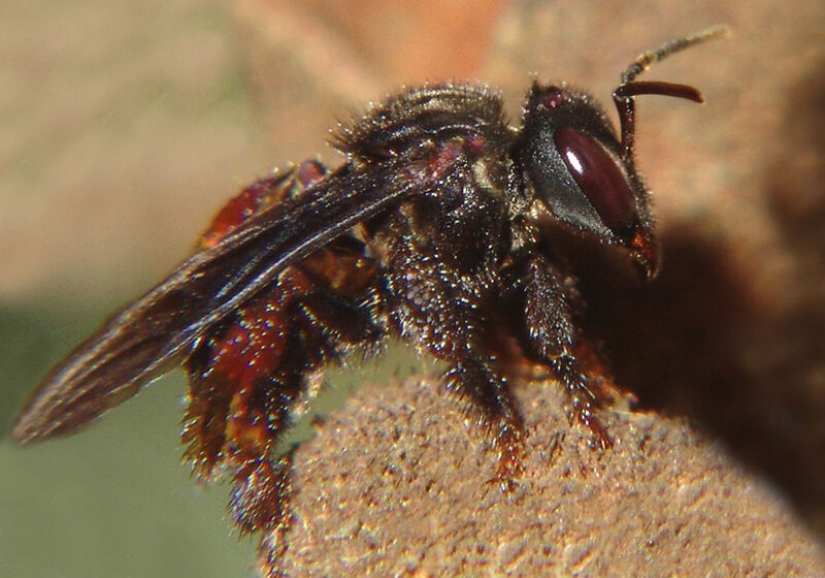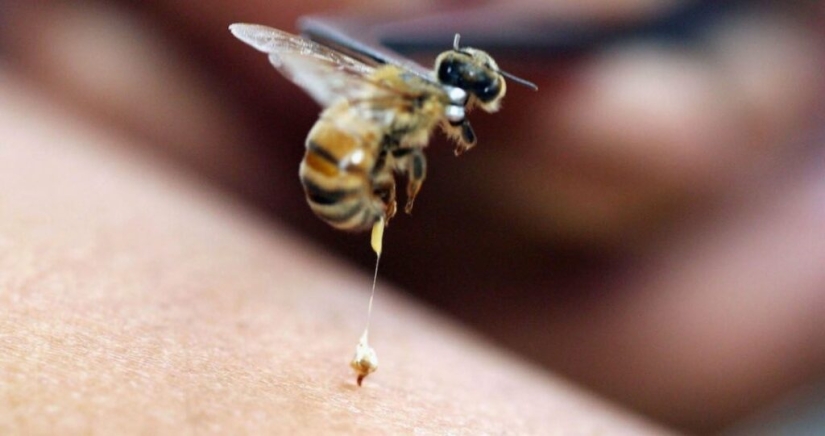Do bees die after they sting? Scientists have revealed the secret
Categories: Animals | Nature | Science
By Pictolic https://pictolic.com/article/do-bees-die-after-they-sting-scientists-have-revealed-the-secret.htmlEveryone knows that a bee stings and soon dies. Its sting remains in the victim's body, and with it the insect loses part of its internal organs. Why did nature make such a mistake when creating a self-defense weapon? Or maybe not everything is so simple and there is some secret?

Bees are amazing creatures, incredibly hardworking and living in developed and very complex communities. Worker bees have a serious defense mechanism — a sting with poison. A bite, or if it is correct, a sting, causes severe pain and can be dangerous even for a person. However, the probability of dying is very low, about the same as the chance of dying from a lightning strike. Every year in the world, only 0.03-0.48 people per 1 million die from bee stings.

A bee sting causes local acute pain and swelling of the affected area. If a person is allergic to bee venom, then he may have a fever and malaise. After a bite, almost everyone is sure that the bee will die, but this is not always the case. Not all bees can sting, and of those that sting, not all die.
Scientists say that melipones, they are ruthless bees, do not know how to sting. They have a sting, but it is not so developed as to cause damage to someone. These winged insects have other ways of protecting themselves. Some species bite with their jaws, others ram the enemy at high speed, and there are bees using plant resin to immobilize the enemy.

Many species of solitary bees living in different parts of the world remain alive and unharmed after being bitten. Bumblebees, hornets and wasps also do not die. But honey bees die after a bite. And the point here is not that evolution has not provided for something, but in our skin.
The bee sting has notches that prevent the insect from extracting it from our thick and elastic skin. The bee stings and flies away, tearing the abdomen. A few minutes later, the bee dies. Her sharp, jagged weapon sits firmly in our skin and it is not easy to remove it even with tweezers.

The stinging apparatus of the honey bee is designed to interact with the dense chitinous shells of other insects. After stinging the wasp, the bee calmly extracts the sting and can immediately attack again. Man is not a natural enemy of bees in nature, so Mother Nature did not provide for a battle with him.
If you think that a bee sting is very painful, it means that you have never been stung by a giant hornet. These guys definitely know a lot about painful bites.
Recent articles

It's high time to admit that this whole hipster idea has gone too far. The concept has become so popular that even restaurants have ...

There is a perception that people only use 10% of their brain potential. But the heroes of our review, apparently, found a way to ...

New Year's is a time to surprise and delight loved ones not only with gifts but also with a unique presentation of the holiday ...